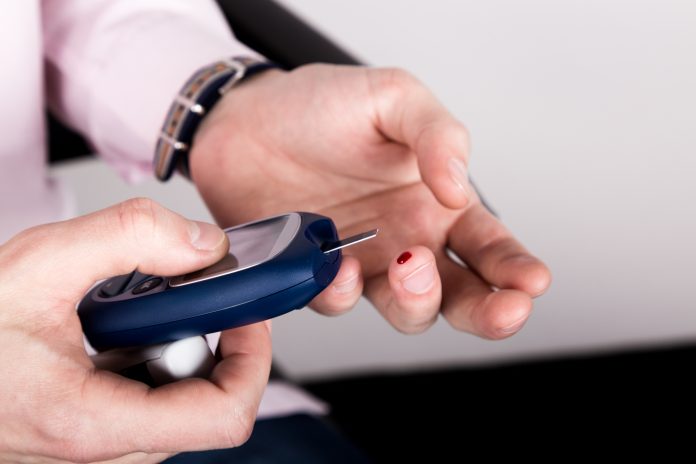Dr Elizabeth Robertson, Director of Research at Diabetes UK details the hunt for an alternative to century-old Type 1 diabetes treatment – and looks at how British diabetes research is demanding something better
Insulin has remained the only primary treatment for people with Type 1 diabetes since its discovery, nearly a century ago. The technology has changed and the insulin used is more effective, but the demands of insulin therapy on people with Type 1 are still too high.
Despite the significant improvements in healthcare for people with Type 1 diabetes, the majority continue to have blood glucose levels above the safe threshold. This means that they face an increased risk of complications, such as heart disease, sight loss and kidney damage. What’s clear is that we need to find more effective ways to treat Type 1 diabetes.
As an alternative to replacing lost insulin, scientists are looking upstream for treatments that reach the underlying cause of Type 1 diabetes: an immune system attack against the pancreas. Could we protect the insulin-producing cells before they become damaged?
This is what new treatments – called immunotherapies – are designed to do and they are already licensed for other autoimmune conditions. Scientists hope that by, for example, retraining the immune system, the therapies could slow the progression of Type 1 diabetes, or even prevent it entirely.
Several immunotherapies have been shown to be safe and some – currently being tested in clinical trials for Type 1 diabetes – has promising evidence of their effectiveness in a laboratory environment. So why are there still no licensed immunotherapies for Type 1 diabetes? The answer is likely related to the complexity of the condition, the lack of investment in diabetes research and, critically, the limited time period in which trial participants can be recruited.
While global trials are underway to find therapies to prevent Type 1 diabetes, one UK initiative is attempting to speed up the development of immunotherapy for those living with Type 1 diabetes today.
Changing the UK immunotherapy landscape
In 2015, Diabetes UK and JDRF established the Type 1 diabetes Immunotherapy Consortium. As a network of scientists and specialist labs working together, it aimed to enable immunotherapy research in the UK to thrive – and get the first immunotherapy for Type 1 diabetes licenced.
Over the last four years, the Consortium has set up trial sites across the UK. Each site has a specialist team to run immunotherapy trials and support recruitment, with a central team of expert scientists on hand to study and compare samples from different trials, to learn more about how the potential treatments work.
They have helped move the UK from a country struggling to deliver immunotherapy trials to one of the top recruiters in Europe. Now, the Consortium is ready to build capacity in order to meet the increasing recruitment needs for the trials in their pipeline.
That’s why Diabetes UK and JDRF recently committed to co-funding the next phase of the Consortium, enabling the network to realise their ambitious plans. Professor Colin Dayan, the co-lead principal investigator of the Consortium, plans to: 1) Expand their network of research sites so that 50% of the UK population will live within 50 miles of a site, with the aim of recruiting 200 newly diagnosed children and 150 adults into trials each year; 2) Harmonise protocols across immunotherapy trials in order to reduce variation and facilitate the pooling of data between different trials so that scientists can learn even more and finally; 3) Make each trial more efficient, so they can be conducted in half the time and with half the number of volunteers.
But the goal of licensed immunotherapy for Type 1 diabetes in the UK requires a concerted effort from across research and healthcare – and we need the help of healthcare professionals supporting people newly diagnosed with Type 1 diabetes.
Making the first 100 days count
Immunotherapies for Type 1 diabetes are currently tested in people newly diagnosed – when they still have some working insulin-producing cells that haven’t yet been destroyed by their immune system. This creates a challenging 100-day recruitment window after diagnosis, in which someone can take part in a trial. This tight recruitment window shrinks the pool of eligible participants and scientists believe this is holding back progress.
Before the Immunotherapy Consortium, approximately 30 of every 3,000 eligible people diagnosed with Type 1 diabetes took part in a UK immunotherapy trial each year. To put this into perspective, one Phase I clinical trial testing the safety of a new treatment could require all 30. Licencing a new drug typically requires trials involving hundreds, if not thousands, of participants.
The Consortium hopes to further improve recruitment – they have already increased numbers fivefold since 2015 – but we are calling for greater awareness of immunotherapy trials amongst diabetes healthcare professionals. With such a tight recruitment window, we all need to take the time to ensure people newly diagnosed with Type 1 diabetes are aware of their options.
And for people diagnosed with Type 1 diabetes, taking part in an immunotherapy trial could be their best chance for a good start. Not only could they have access to potentially effective treatment, but they will also receive excellent clinical care and support at a crucial time in their diabetes journey.
Immunotherapies have the potential to revolutionise the way Type 1 diabetes is treated. If successful, they could lead to improved management and health outcomes in the near-term and hopefully to both preventative and curative measures in the long-term. But realising this potential requires research and healthcare communities to pull together – both in the UK and beyond. We believe that the scene is now set to transform the lives of people with and at risk of Type 1 diabetes.
Dr Elizabeth Robertson
Director of Research
Diabetes UK
Tel: +44 (0)20 7424 1001











